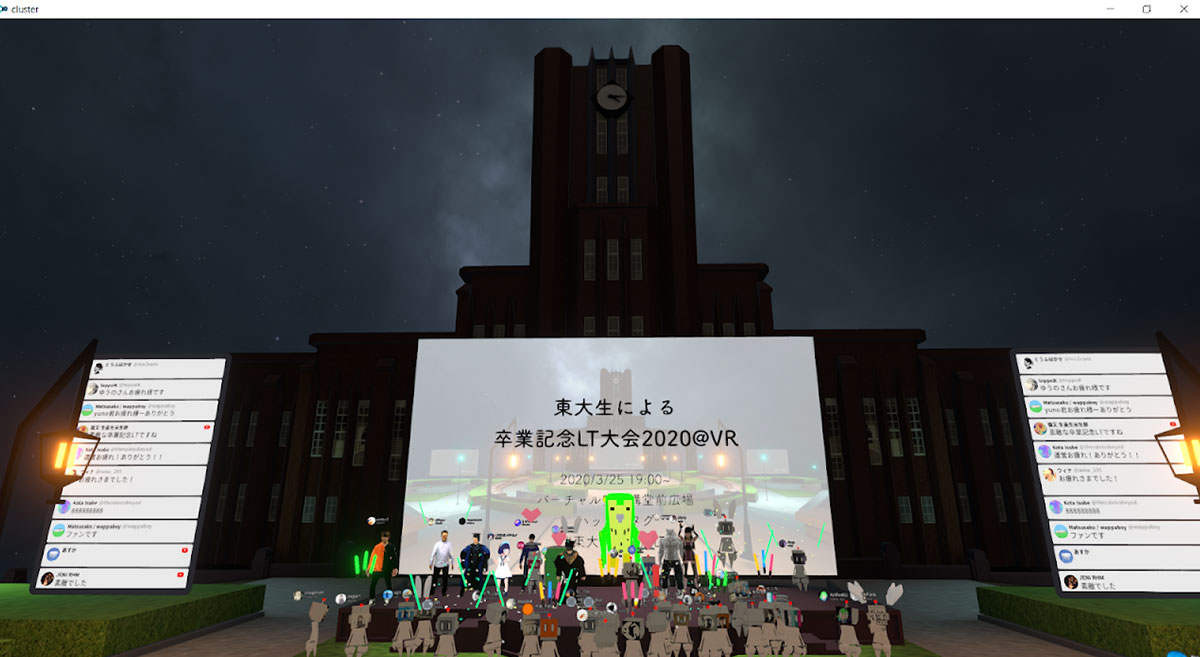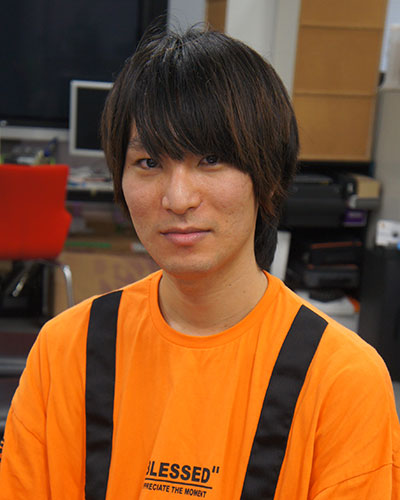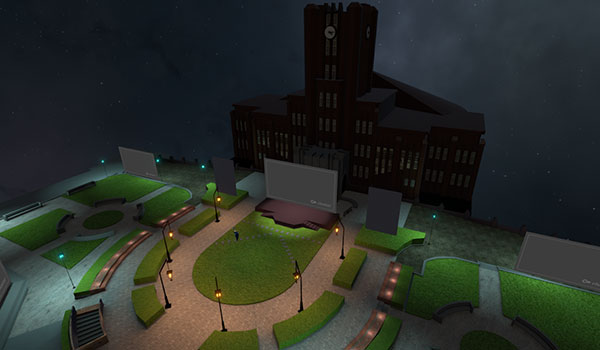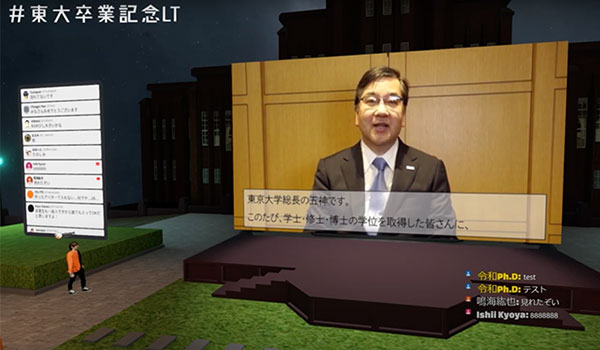Holding a graduation event in front of a virtual Yasuda Auditorium

What do UTokyo’s efforts made under activity restrictions reveal about the University’s direction in this new era?
In 2020, due to the pandemic, activities at UTokyo drastically changed in ways we had never expected. In this issue of Tansei, we record various efforts made at UTokyo over the past six months to offer a chance to think about the University’s activities in the COVID-19 era.
| UTokyo with Corona 4 |
Holding a graduation event in front of a virtual Yasuda Auditorium


First-year Ph.D. student, Graduate School of Interdisciplinary Information Studies
A day after the AY2019 Commencement Ceremony was held on a smaller scale than usual, a group of interested UTokyo students hosted a commemorative graduation event. The venue was the area in front of Yasuda Auditorium, created in the virtual space of a social virtual reality (VR) platform called “cluster.” Fifteen students’ avatars showed up one after another at the location, with each making a five- to 10-minute presentation about their research or other things they poured effort into during their time in the University. The event was livestreamed on YouTube. Yuji Hatada, a graduate student who studies VR, organized the event that added a nice touch to the previous day’s ceremony, in which only representative students from each department had been able to participate.
“Following the announcement that was made about the smaller-scale commencement ceremony, I messaged my friend via the LINE app the next day, telling them we should do something. I’ve held several events using cluster before. I know it’s kind of a clichéd thing for a VR researcher to do, but I thought it’s better to do something rather than thinking too much and ending up doing nothing.”
Thinking that the recreation of the actual ceremony in the virtual world would only be an inferior version of the physical event, Hatada scrapped conventional ceremony aspects, such as the awarding of diplomas, and focused on presentations by interesting UTokyo students from various fields. Being particular about creating a stage that reflects UTokyo’s identity, Hatada asked Takeru Tokoro, a junior student and fellow member of the UTokyo VR club, about creating Yasuda Auditorium in a virtual space. Hatada’s initial plan was to hold the event on a small scale. But after having prepared an event notice and recruited participants on Twitter, when Hatada consulted with Masahiko Inami, professor of human augmentation at the Research Center for Advanced Science and Technology, Inami said, “I'm going to make some things happen.”
“I was like, ‘what!?’ Then, the following day, it was decided that we were going to have a congratulatory message from Professor Michitaka Hirose, the first director of the Virtual Reality Educational Research Center. Furthermore, we were informed President Makoto Gonokami would also give a congratulatory speech at the event. Professor Inami and I went to the president’s office to record his video message.”
On the day of the event, there was a sudden change in the order of the speakers, and the video for Hirose’s congratulatory message froze partway through. But the event was full of fascinating stories, such as that of a student who worked on editing the tardigrade genome, a student who implanted an IC chip in his hand, and one who participated in the International Tatar Language Olympiad. It was three and a half hours packed with their fulfilling research lives. In fact, Hatada himself completed his master’s program in March 2020 and would have been able to make such a presentation himself, but this time he concentrated on operating the event. The result of his research on the relationship between avatars and psychology is sure to pay off in the Ph.D. program at the university that has led Japan’s VR research.


* This article was originally printed in Tansei 41 (Japanese language only). All information in this article is as of September 2020.






